Compare Home Insurance
(Whether you live in a house, townhouse, or cabin in the woods, you still need coverage against tons of risks)

Paul Martin is the Director of Education and Development for Myron Steves, one of the largest, most respected insurance wholesalers in the southern U.S.
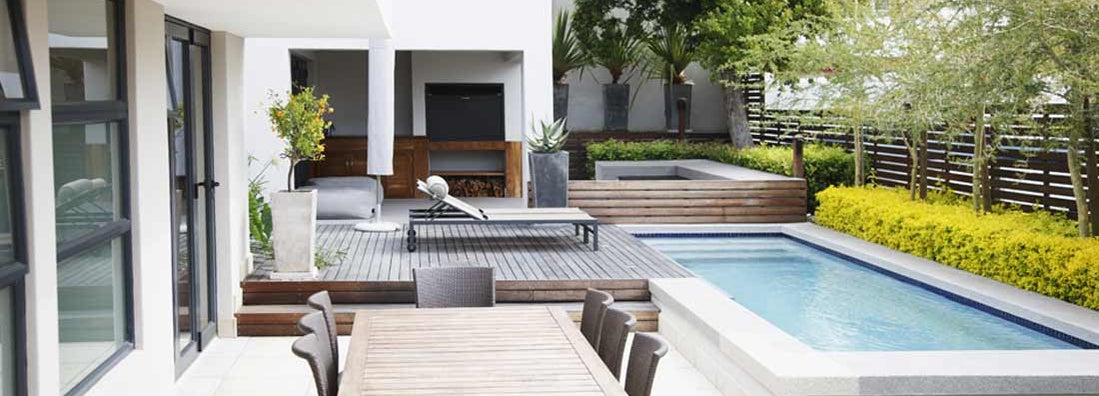
Homeowners of all kinds need protection for their personal dojos, no matter what the structure of walls and beams looks like. So just because you’ve chosen to forego the traditional single-family home route doesn’t mean you’re off the hook when it comes to getting insurance. Homes of all shapes and sizes are up against the temper tantrums of Mother Nature as well as other common perils like theft and fire. Here’s a look at several kinds of homeowners insurance available.
What Is Homeowners Insurance?
For pretty much any type of home out there, homeowners insurance is essentially an agreement between a homeowner and an insurance company in which the insurer agrees to cover financial losses relating to damages and liabilities. Of course, only the specific perils stated in the policy will be covered by the insurance company. Homeowners insurance is designed to help protect homeowners of all kinds from losing their home should disaster strike.
What Does Standard Homeowners Insurance Cover?
To start off, you might want to learn a bit about what traditional homeowners insurance policies cover. Since a home is more than just a physical structure, homeowners insurance is designed to protect all the components that make up your happy place, including your family and your stuff. Standard homeowners insurance policies typically provide the following coverages:
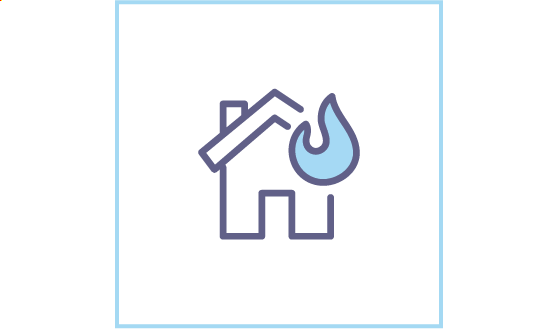
- Structural damage: Covers what insurance companies refer to as the “dwelling,” or the structure of the home itself. Damage to or destruction of the dwelling by covered perils falls under this category. Coverage often extends to detached structures as well, such as sheds.

- Personal property damage: Covers your personal belongings like furniture, clothing, electronics, knickknacks, silverware, etc., from perils such as fire or theft. Items stored within the home as well as external storage units are covered, though property stored off-premises may have a lower coverage limit.
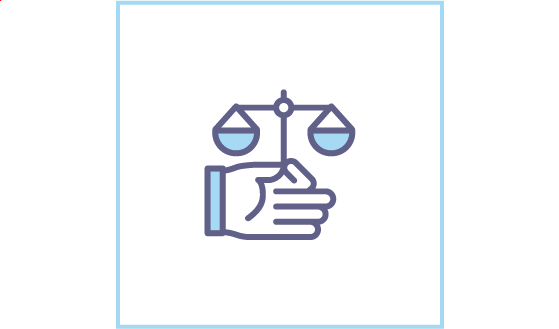
- Liability: Covers legal expenses such as attorney and court fees in the event you are sued for bodily injury or property damage to a third party. Settlements you’re ordered to pay if you lose the case are covered as well. Coverage extends to all members of the family living within the home, including pets. Many incidents that occur away from the home are also covered.

- Additional living expenses: Covers living expenses in the event your home gets badly damaged or destroyed and you’re forced to live elsewhere while awaiting repairs. Your insurance company provides reimbursements for things like hotel rooms, eating out, extra gas mileage, and more. Additional living expenses cover the difference in spending to maintain your normal lifestyle while living away from the home.
These four components compose the core of standard homeowners insurance packages. While traditional homeowners insurance may not be what’s needed for your living situation, it’s good to have an idea of what this coverage offers when shopping around for your own policy.
Homeowners Insurance vs. Renters Insurance

Obviously, not everyone owns their home outright. Renters of all types of homes need coverage to protect themselves and their stuff too. While it’s not identical to standard homeowners insurance, you will notice some similarities in the coverage offered by these policies.
Renters insurance typically provides the following coverages:
- Personal property coverage: This coverage aspect provides reimbursement for your stuff (e.g., clothing, furniture, electronics, etc.,) if it’s damaged/destroyed/lost due to a covered peril like theft or fire.
- Liability coverage: This coverage aspect provides reimbursement for attorney/court fees and medical expenses if an incident occurs on your property. Coverage applies to you as well as guests or workers who enter your home.
- Additional living expenses: Like with standard homeowners insurance, this coverage aspect provides funds to cover additional living expenses should you be temporarily displaced from your home while awaiting repairs.
Though renters insurance isn’t mandatory, if you deeply care about your stuff or are concerned about being able to cover potential liability costs by yourself, coverage may be worth considering.
Homeowners Insurance vs. Condo Insurance

Again, some of the coverages provided by condo insurance look very similar to traditional homeowners insurance, with one major difference. Unlike traditional homeowners, condo owners are not just responsible for their individual unit and personal belongings, but also a fraction of “common elements” within the building, so condo insurance is designed to cover all these aspects.
Condo insurance typically provides the following coverages:
- Dwelling coverage: This condo insurance aspect covers your unit’s structural components like the walls, ceilings, and floors.
- Personal property coverage: Covers your personal belongings like furniture, clothing, electronics, knickknacks, silverware, etc., that are stored within the unit from perils such as fire or theft. This aspect of coverage also protects the building elements you’re responsible for such as toilets, showers, flooring, etc.
- Liability coverage: This is pretty much the same as in homeowners or renters insurance. Coverage provides reimbursement for attorney/court fees and medical expenses should a mishap occur in your unit.
Condo insurance operates very similarly to homeowners insurance, but it’s customized in a way that makes it work for the needs of condo owners. Since the actual condominium building itself is owned by the condo association, various stipulations are needed in condo insurance to adequately protect the owners of individual units.
Homeowners Insurance vs. Townhouse Insurance
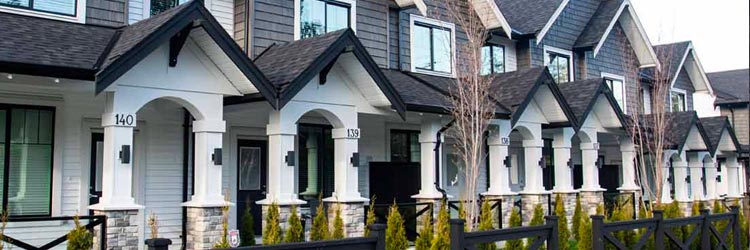
Perhaps the most similar to traditional homeowners insurance of all the other types of coverages on this list is townhouse insurance. That’s because townhouses are often so similar to stand-alone homes that the coverage is nearly identical.
Standard townhouse insurance packages typically include the following coverage:
- Dwelling coverage: Covers your unit’s structural components like the walls, ceilings, and floors.
- Personal property coverage: This is pretty much the same as with traditional homeowners insurance.
- Liability coverage: Again, this is pretty much the same as with traditional homeowners insurance.
The key difference in townhouse insurance is when a townhouse is also technically a condo. In such a case, townhouse coverage will expand to include protection for the owner’s share of the “common areas” within the community.
Homeowners Insurance vs. Vacation Home Insurance

Vacation home insurance can be a little tricky. Vacation homes are defined as being used for recreational purposes, and they must be a structure other than the homeowner’s primary residence.
If a vacation home is really just a secondary home used for your personal vacations, the coverage will be nearly identical to your regular homeowners insurance policy. So if your vacation home is just for personal use and won’t be rented out “more than occasionally” as insurance companies define it, your coverage will include the same elements as a homeowners policy, which means the following:
- Dwelling coverage
- Personal property coverage
- Liability coverage
- Additional living expenses
Now if you’re planning to rent out your vacation home regularly, such as in the case of Airbnb owners, you’ll probably need a slightly different kind of policy known as a dwelling policy. Dwelling insurance is similar to homeowners insurance with respect to property and contents coverages. However, it doesn’t include everything a normal homeowners policy does. One area where dwelling policies lack sufficient coverage is on the liability side.
Vacation home owners who will be renting out their property will likely want to supplement their dwelling policy with a liability endorsement, or choose to extend the liability coverage from their main home to also cover their second home. This is known as an “additional insured location” and would require you to pay an additional premium.
Homeowners Insurance vs. Cabin Insurance
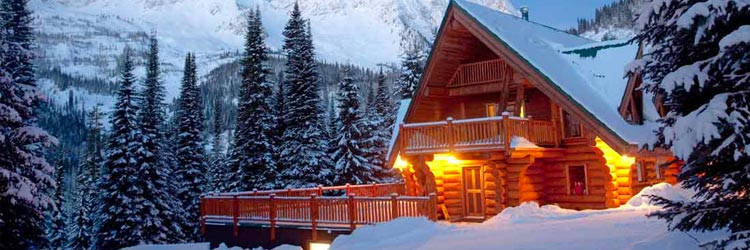
Cabins technically fall into the category of vacation home, so coverage is very similar to both vacation home and traditional homeowners insurance policies. So once again, if you’re a cabin owner, your insurance coverage will look a lot like it would if you were a traditional homeowner.
Cabin insurance often includes the following coverages:
- Dwelling coverage
- Personal property coverage
- Liability coverage
The main difference between cabin insurance and traditional homeowners insurance is how often your cabin will actually be used. If your cabin is vacant several months out of the year, you’ll want to make sure your coverage includes protection for your property during the months it’s unoccupied.
What’s Not Covered by All Types of Homeowners Insurance?
Something all these types of homeowners policies have in common is often the list of perils not covered by insurance companies including certain natural disasters. The areas where your home is lacking coverage from your primary insurance will require an additional policy if you’re concerned about having more complete protection.
Here are a couple of the main supplemental policies homeowners often need:
- Business liability coverage: If you run a business out of your home, even part-time, homeowners insurance policies (of all types) typically won’t cover any liability-related mishaps. Liability issues such as bodily injury or property damage can be costly, so it’s best to have coverage in all areas.
- Special vehicles coverage: Homeowners policies of all kinds tend to limit liability coverage for certain types of vehicles including ATVS, aircraft, boats, etc., and also have very specific exceptions for certain powered vehicles like riding lawnmowers.
- Flood insurance: Flood coverage is always excluded under homeowners insurance policies. If you live in an area along the water or that’s otherwise prone to flooding, you’ll most likely want to purchase a separate flood insurance policy. Flood insurance is only available through the National Flood Insurance Program which is a part of FEMA.
- Earth movement insurance: Earthquakes are another natural disaster always excluded by homeowners insurance policies. If you live in an area prone to earthquakes, you’ll probably want to talk to your independent insurance agent about adding on an earth movement policy.
Your independent insurance agent can advise you on when you’d need to add supplemental coverages on top of your homeowners insurance policy. They’ll make sure you walk away with all the coverage you need.
Benefits of an Independent Insurance Agent
Independent insurance agents have access to multiple insurance companies, ultimately finding you the best coverage, accessibility, and competitive pricing while working for you. Find an independent insurance agent in your community here.
iii.org
